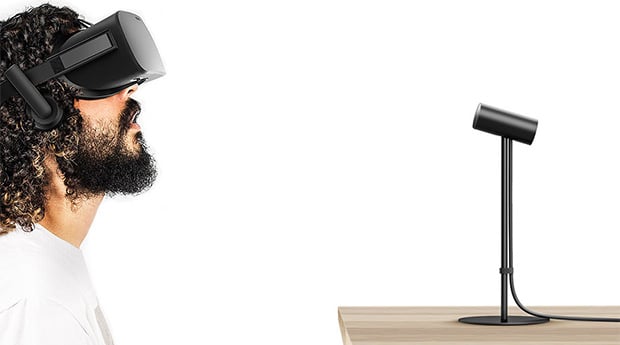Oculus CEO Palmer Luckey Faces Backlash, Apologizes For Oculus Rift Pricing Confusion
In a Reddit AMA, Luckey apologized for the disparity and explained that his "ballpark" comment was made in haste. At the time he, he was trying to dispel the notion that Oculus Rift would cost $1,500, a figure that represented the all-in cost of owning Rift after you factor in the biggest expense, that being a capable PC.
"During that time, many outlets were repeating the 'Rift is $1,500!' line, and I was frustrated by how many people thought that was the price of the headset itself. My answer was ill-prepared, and mentally, I was contrasting $349 with $1,500, not our internal estimate that hovered close to $599 -- that is why I said it was in roughly the same ballpark," Luckey explained.
Luckey readily admitted to doing a poor job of preparing consumers for the retail cost of Rift. It also didn't help that the second development kit ran $350, which set up expectations that the final version would come in at a similar price.
According to Luckey, Oculus doesn't make any money on Rift hardware sales. He points to the core technology in the Rift, that being the pair of OLED displays with high refresh rates and pixel densities and the tracking system, as being the main reason for the Rift's price point.

"The Xbox controller costs us almost nothing to bundle, and people can easily resell it for profit. A lot of people wish we would sell a bundle without 'useless extras' like high-end audio, a carrying case, the bundled games, etc, but those just don’t significantly impact the cost," Luckey added.
Though it's expensive at this early stage, Luckey says "you get a lot more" than you would by dropping $599 on practically any other electronic device, including smartphones that "cost a fraction of that to make." The same goes with mid-range televisions.
Luckey has a point. Smartphones and TVs have the advantage of both being mature technologies with streamlined operations from supply to manufacturing and sale. That isn't true of VR, a new and emerging technology, at least in its current state.
The Rift may come down in price over time and as new models come out, but as is often the case when early adopting a technology, there's a premium involved. It's just unfortunate that Oculus didn't do a better job of preparing customers for that inevitability.
Head over to the AMA for Luckey's expanded thoughts on the matter, as well as other Rift related topics.


